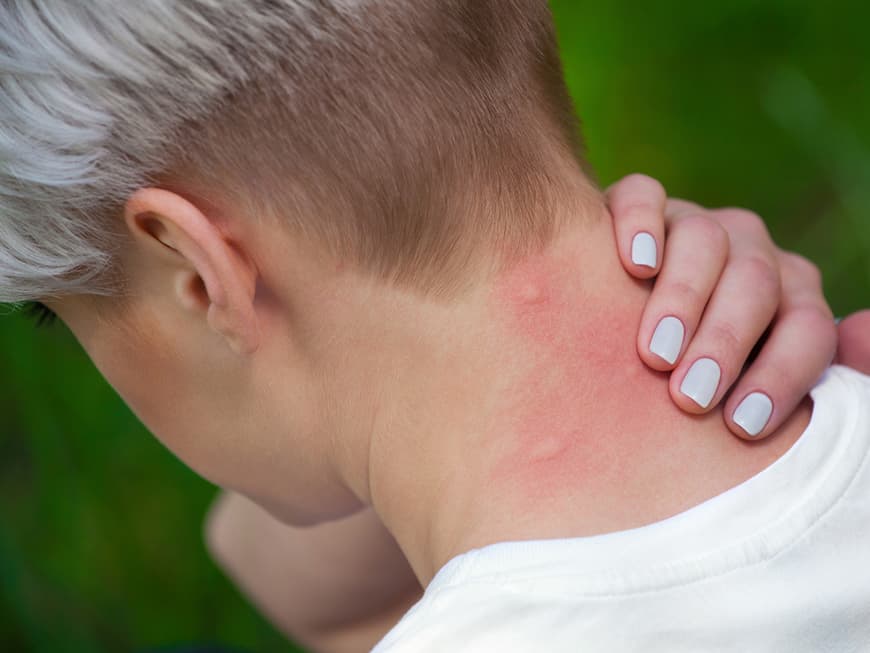
Why do insects sting us at all?
Bees, wasps, bumblebees and hornets sting when they feel threatened. You should therefore never make frantic or even panicky movements. Smaller insects such as mosquitoes, horseflies, ticks and fleas annoy us and sometimes our pets because they need our blood - on the one hand to live and on the other to reproduce. Mosquitoes also belong to this group.
Allergy sufferers live dangerously in summer
An insect bite can be unpleasant or even painful - but it only becomes dangerous if you have an allergic reaction to it. The body reacts most strongly to wasp stings. So if the affected area overreacts to a sting and swells up, you must see a doctor immediately or call 112. If you also experience shortness of breath, dizziness or palpitations, you may be at risk of anaphylactic shock. To avoid insect bites at home, read how best to get rid of insects.
What helps with wasp stings
There will be reddish swelling around the sting site. Cool the area with ice or a decongestant ointment.
Home remedies for bee stings
Unlike a wasp sting, the stinger remains stuck in the skin and should be scratched away. And: cool, cool, cool.
Treat mosquito bites with heat
Heat a teaspoon to 50 degrees, then place it on the area. The heat destroys the enzymes that cause itching. Electronic versions are now also available in pharmacies (e.g. bite away sting healer)
What to do about horsefly bites
Horseflies have sabre-like mouthparts that bore directly into the skin - and that really hurts. Heat also helps here.
Onions against bumblebee stings
They are the teddy bears of insects, their sting contains less venom than that of wasps and bees. Cooling or half an onion directly on the sting helps.
How to recognize blood poisoning
It feels like a cold: fever, chills, low temperature or shortness of breath. If you have been stung by something and experience these symptoms: see a doctor immediately!






